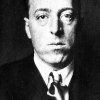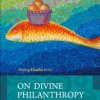Nakon uspešne premijere filma ,,Linija života“ koja je, u prepunoj sali Kombak Dvorane otvorila prošlogodišnji Beldocs, dobitnik godišnje nagrade UFUS-a za najbolji dokumentarni film 2019. godine, biće prikazan na Drugom programu RTS-a u utorak 5. maja u 20 časpoa. Tog dana navršava se 75 godina od oslobođenja logora Mauthauzen.
„Linija života“ je film o čuvenom slikaru i profesoru Milošu Bajiću, ali film o životu u XX veku koji je podneblju Balkana doneo periode velikih razaranja i velikih obnova. O surovosti rata u kojem je ljudski život vredeo onoliko koliko je čovek bio sposoban da radi u monstruoznoj mašineriji koncentracionih logora. O 11 miliona onih koji nisu dočekali šansu da nakon tog rata žive, rade, stvaraju i stvore porodice. I o tome kako je glavni junak ovog filma svojom maštom i umetnošću pobedio smrt.
Đorđe Bajić
Izvor: Filmski centar Srbije





